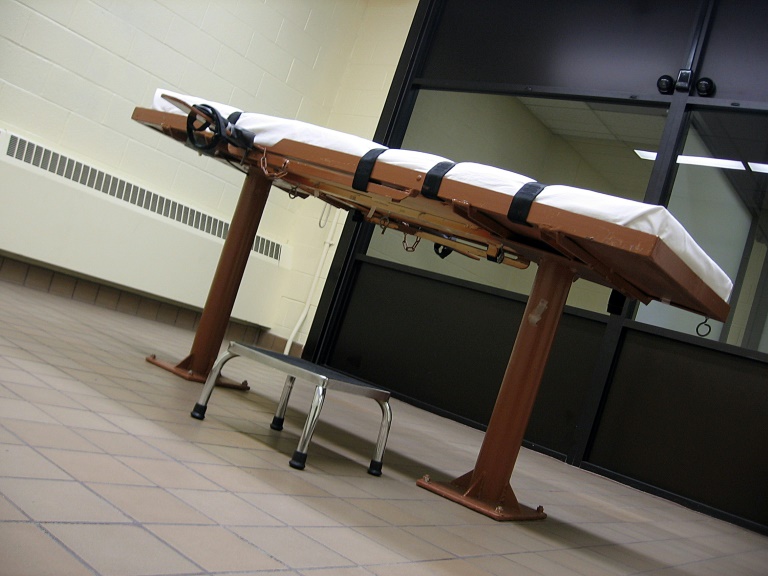The US Supreme Court will consider Tuesday a death row prisoner’s request that his pastor be allowed to touch him during his execution, a case that could determine the role of religious advisors in death chambers.
John Ramirez, 37, was scheduled to be executed on September 8 for stabbing a convenience store clerk to death during a 2004 robbery.
Seth Kretzer, Ramirez’s lawyer, petitioned the Supreme Court to halt the execution because the Texas Department of Criminal Justice (TDCJ) will not allow Ramirez’ Baptist pastor, the Reverend Dana Moore, to have physical contact with him as he is executed or to pray aloud in the chamber.
The high court granted Ramirez a last-minute stay of execution and scheduled a hearing to consider the merits of the case.
“The first problem is that under the TDCJ’s most recent policy, Pastor Moore (may) not lay hands on Ramirez during his death,” Kretzer said while petitioning the Supreme Court.
“The second problem is that Pastor Moore may not pray, speak, read Scripture, move his lips, or do anything at all.
“In other words, Pastor Moore is compelled to stand in his little corner of the room like a potted plant.”
“Ramirez will be executed without the spiritual advisor guaranteed to him under the Constitution,” Kretzer said.
When Ramirez was 20, he stabbed a clerk to death while robbing a convenience store in southern Texas.
He avoided capture for four years but was finally arrested in 2008 and sentenced to death a year later.
A few months before his scheduled execution, Ramirez had gone to court to ask that his pastor be allowed to put his hands on him and pray aloud during the execution.
The Texas prison authorities allow a spiritual advisor to be in the room during an execution, but they must be quiet and are not allowed to touch a prisoner for security reasons.
– Imam denied –
The conservative-leaning Supreme Court rarely intervenes to halt executions, but it has done so in recent cases where prisoners have argued they are being denied access to spiritual advisors.
The court could take the opportunity of Ramirez’ case to clarify its position on the religious rights of those sentenced to death.
In 2018 it rejected the request of a stay of execution for Muslim prisoner who asked for an imam to be by his side during his execution.
A few weeks later, following a public outcry, a stay was granted to an inmate who wanted a Buddhist spiritual advisor to accompany him to the execution chamber.
Several states have banned all spiritual advisors from the death chamber, but the court ruled earlier this year that states could not outlaw spiritual advisors to accompany death row inmates entirely.
Ramirez’s case would allow the court to say what restrictions on the presence of spiritual advisors are legitimate in the prison system and in the execution chamber.











